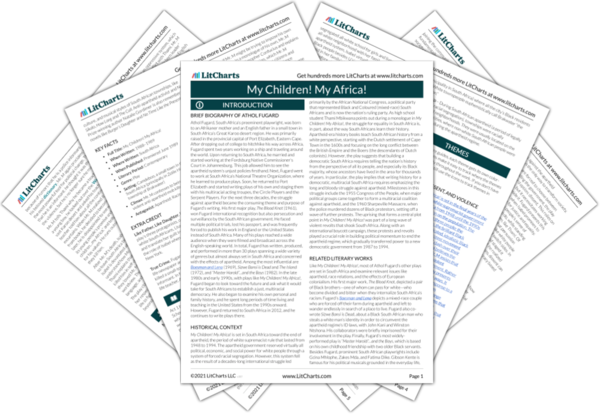Mr. M’s dictionary represents the power of words, in the context of both education and political dissent. Although the dictionary briefly appears at the beginning of the play, it becomes more important during the play’s climax, when Mr. M passionately presents his vision of social change to Thami. Holding a stone in one hand and the dictionary in the other, Mr. M declares that the stone is just one concept, while the dictionary contains the entire English language. In other words, by choosing to throw the stone—which symbolizes joining the violent revolt—Thami would limit himself to an ineffective tool. But by choosing the dictionary which symbolizes furthering his education and using persuasion to pursue political change—Thami can expand his range of opportunities and make a far greater impact. Mr. M then offers Thami this beloved dictionary, which represents the way he hopes to pass down knowledge and wisdom to his star student.
Mr. M’s Dictionary Quotes in My Children! My Africa!
(Picks up his dictionary. The stone in one hand, the book in the other) You know something interesting, Thami…if you put these two on a scale I think you would find that they weighed just about the same. But in this hand I am holding the whole English language. This…(The stone) is just one word in that language. It’s true! All that wonderful poetry that you and Isabel tried to cram into your beautiful heads…in here! Twenty-six letters, sixty thousand words. The greatest souls the world has ever known were able to open the floodgates of their ecstasy, their despair, their joy!…with the words in this little book! Aren’t you tempted? I was.
(Opens the book at the flyleaf and reads) “Anela Myalatya. Cookhouse. 1947.” One of the first books I ever bought. (Impulsively) I want you to have it.










